Impact
Program Impact
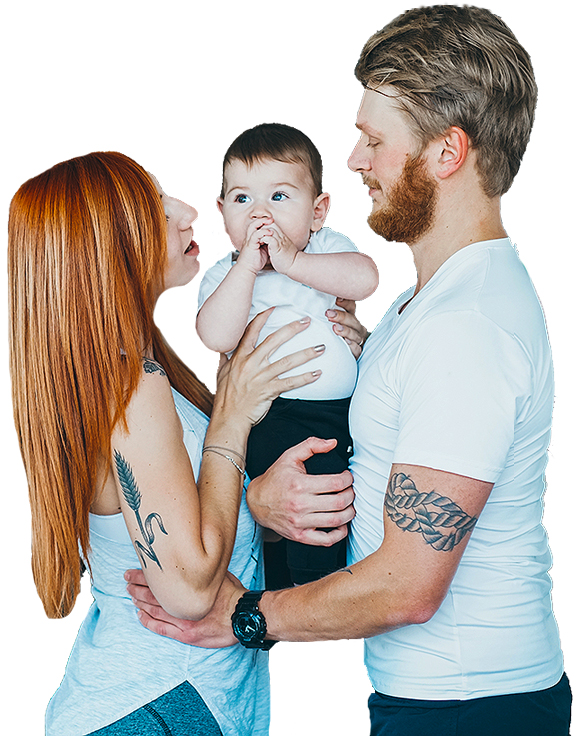
Becoming better fathers translates into better relationships with their children and partners, and healthier development and outcomes for their children.
The Mindful Fathering program is designed to directly help fathers, and to indirectly bring benefit to children and their mothers by teaching fathers healthy parenting and relationship skills
Since 2008, over 15 group cycles have been evaluated and we have accumulated almost 100 pre- and post-scores. Mindful Fathering has very high retention rates and fathers show steady positive outcomes with:
- Gains in motivation
- Reduced parenting dysfunction
- Reduced emotional reactivity
- Increased awareness, and
- Acknowledgement of parenting behaviour and impact on children
Out of 226 program participants that completed the program satisfaction survey, 200 fathers reported:
- 89% had an increased awareness of child development and age appropriate expect ions
- 95% experience a decrease in anger and aggression
- 95% experienced improved parent child relationships and co-operation in co-parenting
- 95% of the fathers indicated increased knowledge and confidence in their parenting skills
- 100% of the fathers indicated increase knowledge on how children are affected be being exposed to family violence
Testimonials from fathers who have participated in Mindful Fathering
Program Success Stories
- Investing in Fathers is an Investment in Children and Youth
- Marc's Story
- Eric's Story
- Ben, Rose & Dana's Story
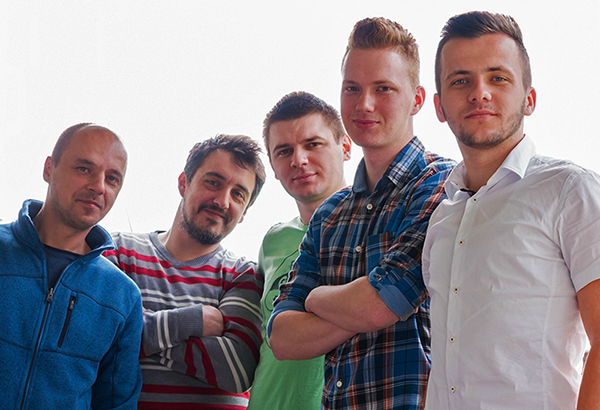
At the heart of Yorktown’s raison d’être is supporting the psychological and emotional well-being of children and youth. Nurturing caregivers are critical in the healthy development of children. The goal of Mindful Fathering is to help fathers become the fathers they want to be and positive role models for their children.
Rodrigo Moreno, who has been facilitating Mindful Fathering for the last 10 years and has 20 years’ experience working with inner city youth in violence prevention projects, describes the Mindful Fathering approach as “welcoming the participants with open arms.”
“Together, as a group, we unpack the situation that brought each father to Mindful Fathering, and then step back and explore our understandings of masculinity and the role of ‘father’. When we examine our perceptions, and our behaviour and learn mindfulness, it leads to a lot of breakthroughs and ‘ah-hah’ moments. This program has an extremely low attrition rate, which isn’t typical for fathering programs of this nature,” says Rodrigo.
Referrals to Mindful Fathering come from child welfare, probation, children’s mental health, other community service agencies and participant word-of-mouth. Self-referrals are also becoming more common.
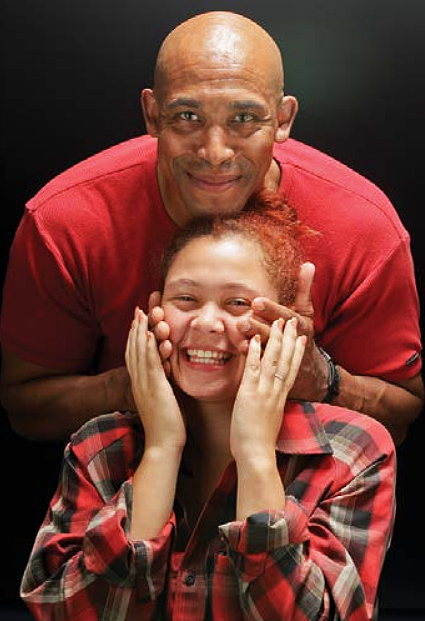 Marc attended Mindful Fathering many years ago. A father of two daughters, Marc brought his younger daughter, Isabelle, to Yorktown for counselling when she was 14. Marc and Isabelle were like “oil and water” and when he noticed a flyer for the Mindful Fathering program in the Yorktown reception area, he made “the wise decision to check it out.”
Marc attended Mindful Fathering many years ago. A father of two daughters, Marc brought his younger daughter, Isabelle, to Yorktown for counselling when she was 14. Marc and Isabelle were like “oil and water” and when he noticed a flyer for the Mindful Fathering program in the Yorktown reception area, he made “the wise decision to check it out.”
As a child, Marc was sent to boarding school at age 9 and never lived in a family environment again until he was an adult with a family of his own. He was always on sports teams starting at a young age. According to Marc, “I knew how to be a member of a team, but somehow, I felt like my ‘family team’ had a ‘disconnect’. I thought Mindful Fathering might help with that, and it did.
The most important thing I learned was how to listen. I paid better attention and became more perceptive. I know I have changed. I didn’t know what to expect when I started attending Mindful Fathering but I had no intuition for raising daughters and knew I had something to learn. I learned how to contribute to their lives and how to build relationships with them. I know I wouldn’t have gotten to where I am now without Mindful Fathering.
I didn’t know what I didn’t know and this changed my perspective on my life. My relationships with my daughters are much better than before and the skills I learned have served me well with other relationships.”
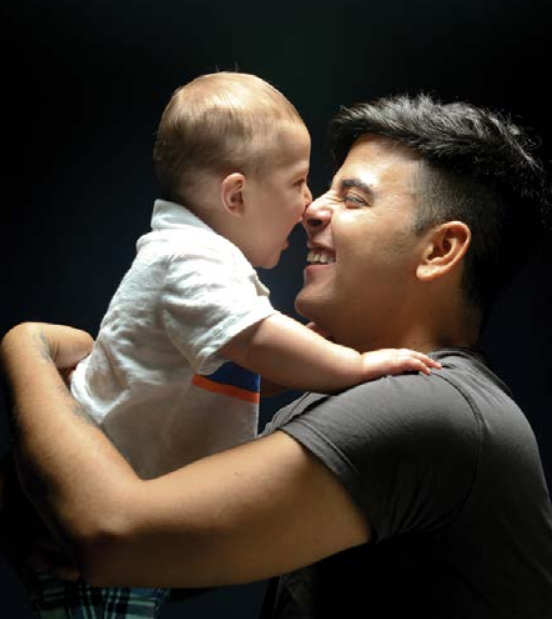 Eric is a recent graduate of Mindful Fathering. He attended the 12-week program from January to March of 2017. There were 12 fathers in the group and Eric, at age 29 was the youngest. He had been referred by Catholic Children’s Aid to attend a fathering program when he was seeking full custody of his new born baby boy, Jason. It wasn’t mandatory for him to enroll in the program, but he was advised that it would strengthen his chance of having custody. “This was my first time being a parent and I was prepared to take advantage of any support that was available to me and if it would help me get custody of my son, who was in foster care, then I considered everything else a bonus. I wasn’t sure what to expect. I thought we might be learning how to change diapers but it wasn’t like that at all. One thing that was a surprise but really useful was what we learned about relationships and it has been very helpful with my interactions with the mother of my son.”
Eric is a recent graduate of Mindful Fathering. He attended the 12-week program from January to March of 2017. There were 12 fathers in the group and Eric, at age 29 was the youngest. He had been referred by Catholic Children’s Aid to attend a fathering program when he was seeking full custody of his new born baby boy, Jason. It wasn’t mandatory for him to enroll in the program, but he was advised that it would strengthen his chance of having custody. “This was my first time being a parent and I was prepared to take advantage of any support that was available to me and if it would help me get custody of my son, who was in foster care, then I considered everything else a bonus. I wasn’t sure what to expect. I thought we might be learning how to change diapers but it wasn’t like that at all. One thing that was a surprise but really useful was what we learned about relationships and it has been very helpful with my interactions with the mother of my son.”
In February when his court case came up Eric had already started the Mindful Fathering program and was granted temporary custody of Jason. He has his son from Thursday to Tuesday and Jason is in foster care the rest of the time. Eric has applied for full custody.
“I really did like the program. It was a great opportunity for fathers to meet other fathers and learn from each other’s experiences. The exercises in the program were amazing. In the beginning, when I first had my son, I would get very frustrated when he cried but I learned ‘coping techniques’ which really help.
I am very happy with how things are going. What is the main thing for me and the most important outcome from participating in the program? If it wasn’t for Mindful Fathering, if this didn’t exist, I wouldn’t have gotten my child back. “I really want to be a great father and participating in Mindful Fathering is helping me to do this”.
Since the loss of his wife, Ben was finding Rose’s behaviour increasingly challenging. “I was struggling with the pain of my wife’s death and I turned my attention inward. I didn’t recognize that the girls were also struggling to process the pain of losing their mother,” he recalls. Ben’s girlfriend, Mavis*, began living with the family and this increased the friction between Ben and his daughters. Rose, in particular, was having difficulty and was unable to cope with the emotions she was experiencing.
After her suicide attempt, Rose was hospitalized for two weeks at St. Joseph’s Hospital. When she was discharged the psychiatrist recommended she, Ben and Dana all go to Yorktown’s walk-in. “The doctor at St. Joseph’s said that Yorktown is a really good place to go. I had never been to Yorktown but I had been to a therapist before. This was going to be different. It wasn’t just for me, it was for our family this time, and it turned out this made a big difference,” says Rose.
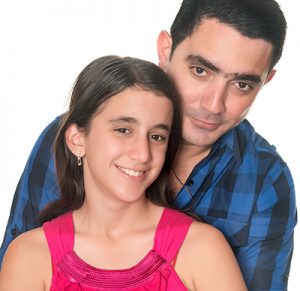 Beginning in June, the family came to the walk-in on a weekly basis. After five visits, they were assigned a dedicated counsellor, Maureen, for On-going Service which is typically 12 sessions. After seeing the family weekly for two months, Maureen recommended that another clinician be assigned to Dana. “I felt that Dana needed the opportunity to find her voice and this would be enhanced if she had her own counsellor,” says Maureen. Maureen continued to see Rose and Ben, sometimes together, sometimes each individually. In the fall, Dana was assigned her own counsellor, Naszrin.
Beginning in June, the family came to the walk-in on a weekly basis. After five visits, they were assigned a dedicated counsellor, Maureen, for On-going Service which is typically 12 sessions. After seeing the family weekly for two months, Maureen recommended that another clinician be assigned to Dana. “I felt that Dana needed the opportunity to find her voice and this would be enhanced if she had her own counsellor,” says Maureen. Maureen continued to see Rose and Ben, sometimes together, sometimes each individually. In the fall, Dana was assigned her own counsellor, Naszrin.
In September, Ben began attending Mindful Fathering, a 14 week program dedicated to fathers who want to build their relationship with their children. The program supports fathers to better manage their anger and aggression.
It had been suggested to Ben by two separate counsellors in the walk-in, and also by Maureen and Naszrin that he participate in Mindful Fathering. “I was offended when the first counsellor at the walk-in suggested it. It is a program for abusive fathers and I didn’t take the suggestion very well. The second time, the counsellor told me that he used to facilitate Mindful Fathering. He said, ‘Trust me, this will answer so many of your questions. You will do great in this program.’ I started the program in September and it really, really changed me,” says Ben. He adds “I feel that all this pain and the roller coaster ride that I’ve been on these last 5 or 6 years is starting to make sense and I can help my kids. I can actually grow from this. This sad situation has now become somehow beautiful at the same time.”
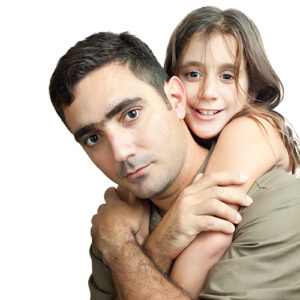 During the time that Ben participated in Mindful Fathering, he also continued to have consultations with Maureen and Naszrin, sometimes alone
During the time that Ben participated in Mindful Fathering, he also continued to have consultations with Maureen and Naszrin, sometimes alone
and sometimes with his daughters. “When Dad started going to Mindful Fathering we began to see the difference in him. He was paying attention and watching how we reacted to him. He would tell us, ‘I can’t control your actions but I can control how I respond, if you are doing something that I don’t like. It’s not your fault if I get angry, it’s my feelings and I have to control them for myself.’ He became much calmer,” says Dana. Rose adds, “Actually, I saw the change before he started Mindful Fathering, but I didn’t trust that it was real, at first. Therapy does help. My family has grown a lot from it. My dad has changed tremendously from it. He has become a really good dad for both of us.”
“It took me a good year and a half to fully absorb all this knowledge that I have gained; especially with Maureen and later on with Naz. I have to give huge credit to the Mindful Fathering facilitators, Rodrigo and Susan. Rodrigo really made an impression on me. What I learned from him influenced a big change. He offered me empathy and forgiveness for the same things. Thanks to all these people, I now have the tools that I didn’t have before and I continue to use them every day,” says Ben.
While attending On-going Service with Rose and Dana, Ben also attended Mindful Fathering twice, and Parenting Wisely, a parenting program designed for families who have children from ages 7 to 18 years. The family continues to utilize the skills they acquired through counselling; Yorktown’s walk-in clinic is available to them should they need support at any time, in the future.
*Identify has been changed to protect the client’s privacy
